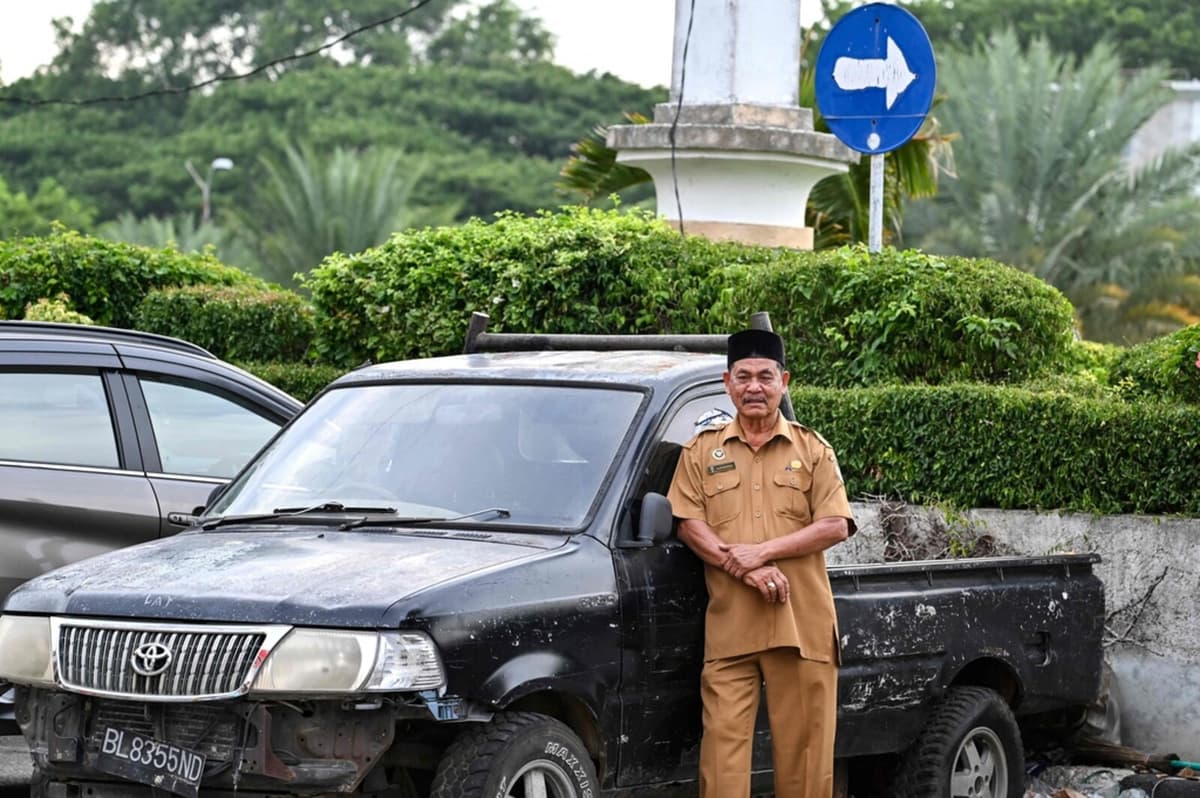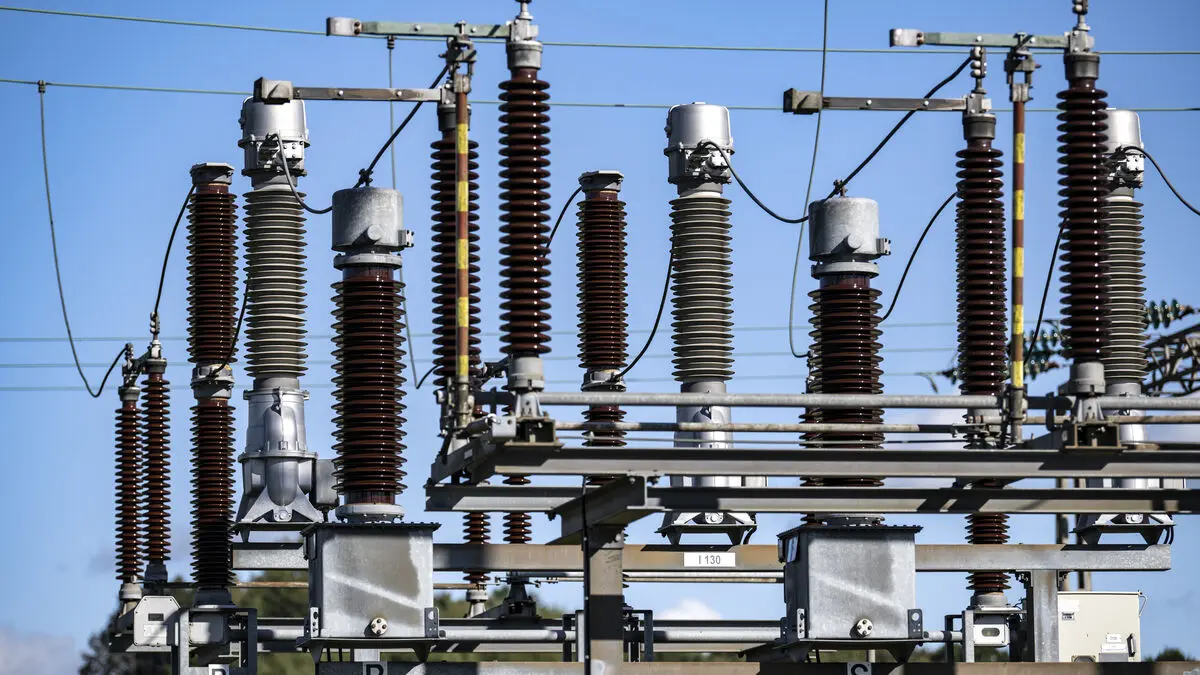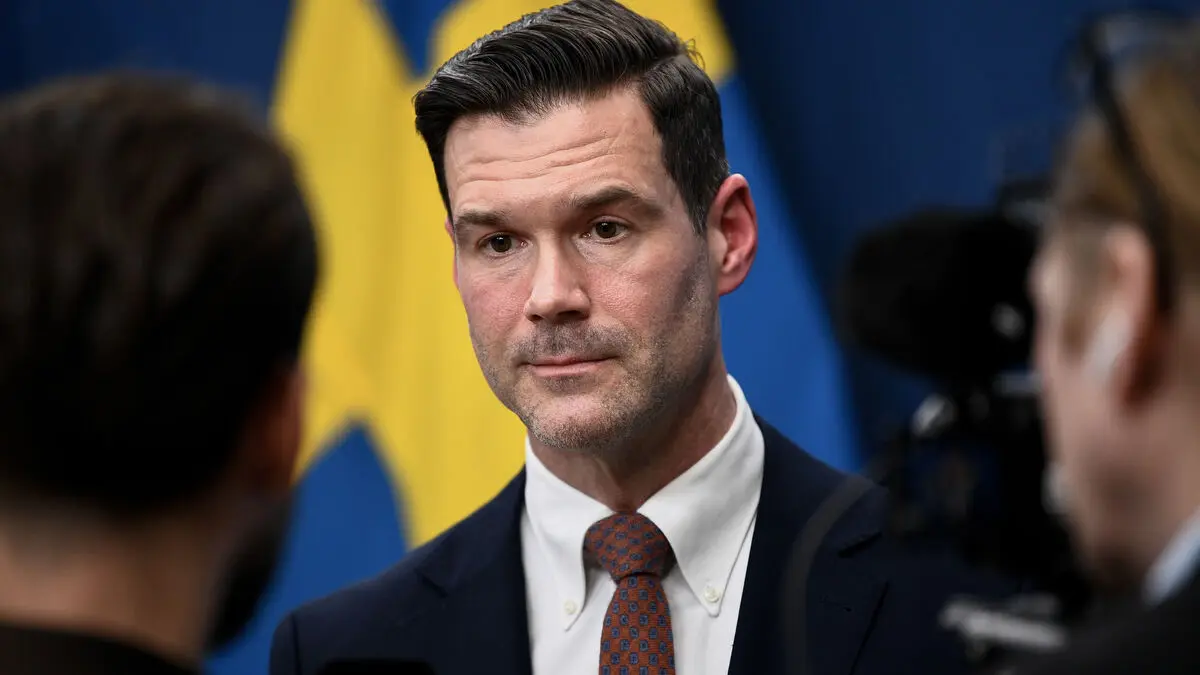Twenty years ago, Djafaruddin gathered dead bodies after the tsunami and drove them to the hospital. Some of them were missing body parts.
When I saw how it looked in the river, with scattered bodies, I screamed and cried, he says.
In total, more than 220,000 people died in 14 countries in the tsunami on Boxing Day 2004. In Indonesia, 160,000 people died, although the real death toll is believed to be much higher since many were never found, and many bodies could never be identified.
Here we saw fathers and mothers crying, searching for their wives, searching for their husbands, searching for their children, says Djafaruddin when he returns to the site 20 years later.
Got Bread and Water
He himself was at home when over 30-meter-high waves crashed over the land. The road outside the house was filled with people fleeing. He took the car in the opposite direction. The pickup, which was usually used for loading traffic lights and road signs during working hours, was filled with human bodies that day.
Later, the military and the Indonesian Red Cross arrived. In the evening, after collecting and delivering bodies all day, Djafaruddin received bread and water from the hospital staff.
Since we were covered in blood and mud, they gave us food, he says.
For several years, he suffered from trauma after the tragedy, and when he remembers the children crying for their missing parents, he cannot hold back tears.
Reconstruction
The former separatist leader Muharram Idris once led thousands of people in the movement Gam against the country's military in Aceh. Today, he is instead a local politician and believes that peace came because of the tsunami.
The need to help those affected made the separatist movement and the government come closer, which made it possible to mediate, he says.
Sidney Jones at the think tank Institute for Policy Analysis of Conflict in Jakarta agrees.
The tsunami made both sides more interested in recovery and reconstruction than in continuing the conflict, he says.
Among Aceh's Muslim population, there is a widespread belief that God sent the tsunami as a sign that the conflict had to end.
When Djafaruddin passes the site where he gathered the dead, he prays for the victims.
Allah, my God. Give them heaven.






